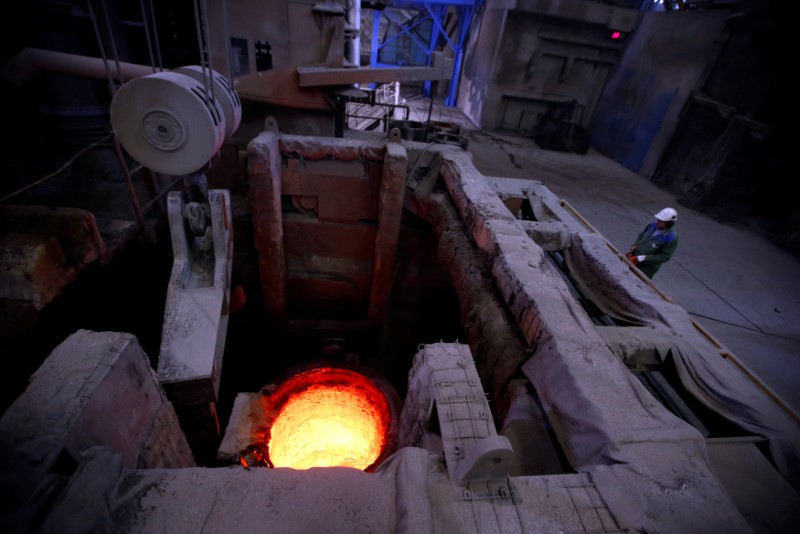By Ruby Lian and Manolo Serapio Jr
SHANGHAI/MANILA (Reuters) - China's steel output dropped in September from a record high the previous month as mills in the world's top producer cut production in line with Beijing's campaign for clearer skies, pointing to further drops as winter curbs set in.
Crude steel output hit 71.83 million tonnes in September, the lowest since February and down from 74.59 million tonnes in August, National Bureau of Statistics data showed on Thursday. September's average daily output was 2.39 million tonnes, down 0.8 percent from August, according to Reuters' calculations.
Before slipping last month, Chinese mills had mostly been churning out steel at a record rate from March to August amid strong domestic demand, fatter profit margins and an environmental crackdown that shut out some other producers.
Mills in the northern part of China are expected to cut output during the winter season - four months from mid-November - on government orders to fight smog in part by cutting pollution from industrial plants.
Some analysts have estimated at least 30 million tonnes of China's steel output may be lost during the four-month period, or nearly 4 percent of last year's production.
But that number could be bigger, with mills in several cities already slashing output as early as this month, including those in the top steelmaking city of Tangshan.
"Definitely we will see production decrease in coming months. Several mills have started to cut production already," said CRU consultant Richard Lu. "Small mills will be heavily impacted but larger mills, particularly the government-backed ones, can do better."
Xia Junyan, investment manager at Hangzhou CIEC Trading Co in Shanghai, estimates crude steel output will drop as much as 40 million tonnes between November and March.
Chinese mills ramped up output earlier this year as higher prices, boosted by the government's supply-side reforms and infrastructure push, boosted profit margins particularly for construction steel products like rebar. Rebar futures in China
That meant output in September was still 5.3 percent higher than in the same month a year ago. Production for the first three quarters of the year came in at 638.73 million tonnes, up 6.3 percent.
Rebar prices sank nearly 4 percent on Thursday as worries over demand, which typically slows in winter, surfaced.
"We think when supply-demand fundamentals take hold, margins will narrow and costs will go down and we forecast prices will follow," said CRU's Lu.
